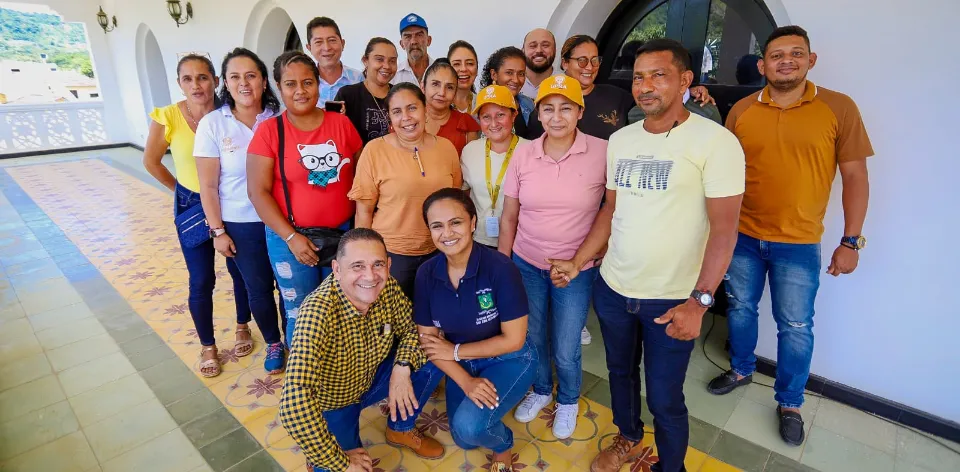 25/7/2024
25/7/2024
We Prioritize, with the Communities, the Productive Alternatives of the Campesino Reserve Zone Montes de María 2, Bolívar

The peasant reserve zones (ZRC) are defined as a planning instrument that recognizes, protects, and promotes the campesino economy and the sustainable development of the territories. During 2024, we have built, from the territories, the prioritization of agro-productive alternatives for the ZRCs of the Perla Amazónica in Putumayo and Montes de María 2 in Bolívar.
San Juan de Nepomuceno, Bolívar. (@UPRAColombia, @claudialili76). “We feel heard and visible, that we are part of a planning exercise done from our reserve zone, not from the cities. Because here, over these days, the inhabitants of the amphibious zones, the campesinos from the plains, the mountains, the association, the leaders, women and men, young and old, who have fought for Montes de María 2, came together to contribute to improving our quality of life, protecting our environment and our land, and giving an opportunity and voice to the campesino struggle,” expressed Héctor Gazabón, leader and executive director of the ZRC Montes de María 2.
This week, The Ministry of Agriculture and UPRA toured the ZRC Montes de María 2, Bolívar, alongside producers, leaders, and representatives of associations from the municipalities of Córdoba, El Guamo, San Juan de Nepomuceno, and Zambrano in the department of Bolívar.
“Our goal in this territory, which covers about 44,000 hectares, is to develop a participatory exercise of prioritizing agro-productive alternatives led by the Ministry of Agriculture and UPRA, with the support of the association representing the campesinos of the ZRC Montes de María 2, but centering the process on the experience, ancestral knowledge, and projects proposed by its inhabitants,” stated Claudia Cortés López, director of UPRA.
Fidel Londoño Stipanovic, the leader of the process at the entity, explained: “We had two sessions in the department of Bolívar, one in San Juan de Nepomuceno and the other in Córdoba, with excellent attendance and participation from the communities; they allowed us to understand the reality of agro-productive activity in the ZRC, to select and define around 32 prioritized products in each session; notable among them are: corn, sesame, livestock, fishing, watermelon, eggplant, goats, yucca, yam, plantain, passion fruit, mandarin, avocado, melon, and lemon, among others. These are long-term planning and management initiatives.”
We also toured part of the ZRC and saw the different productive alternatives in the municipality of Córdoba, where we visited the San Andrés del Río and Tacamocho sectors, with their impressive wetlands and amphibious production systems; as well as field visits to San Cayetano and San Juan de Nepomuceno.
This effort is part of the Government of Change's commitment to the 14 ZRCs defined in Colombia, working with rural inhabitants from the territories to protect these zones that result from the history of campesino colonization and organization processes around food sovereignty and environmental conservation. They are a planning instrument that recognizes, protects, and promotes the campesino economy and the sustainable development of the territories.
As a fundamental part of this exercise, we also carried out the collective construction of 'productive agromemories'; a process that documents the agro-productive and organizational memories of the ZRC, developed in the daily practices of the communities and their food security and sovereignty strategies. “It was an opportunity to think and feel what our grandparents ate, and even what we ate as children; customs that we have already been losing and need to recover: sweet potatoes, yam, corn, sesame... And for the work to be based on what we do in our lands, to reflect our reality; that's why this opportunity we had today is very hopeful,” commented Yeimys Barrios, a leader from the San Juan del Peñón village.
In 2023, UPRA advanced with the prioritization of agro-productive alternatives for the 32 departments; and in 2024 and 2025, it will continue touring the ZRCs to prioritize agro-productive alternatives and build, always with the territories, tools that guarantee the food security of their inhabitants and support the campesino way of life.

